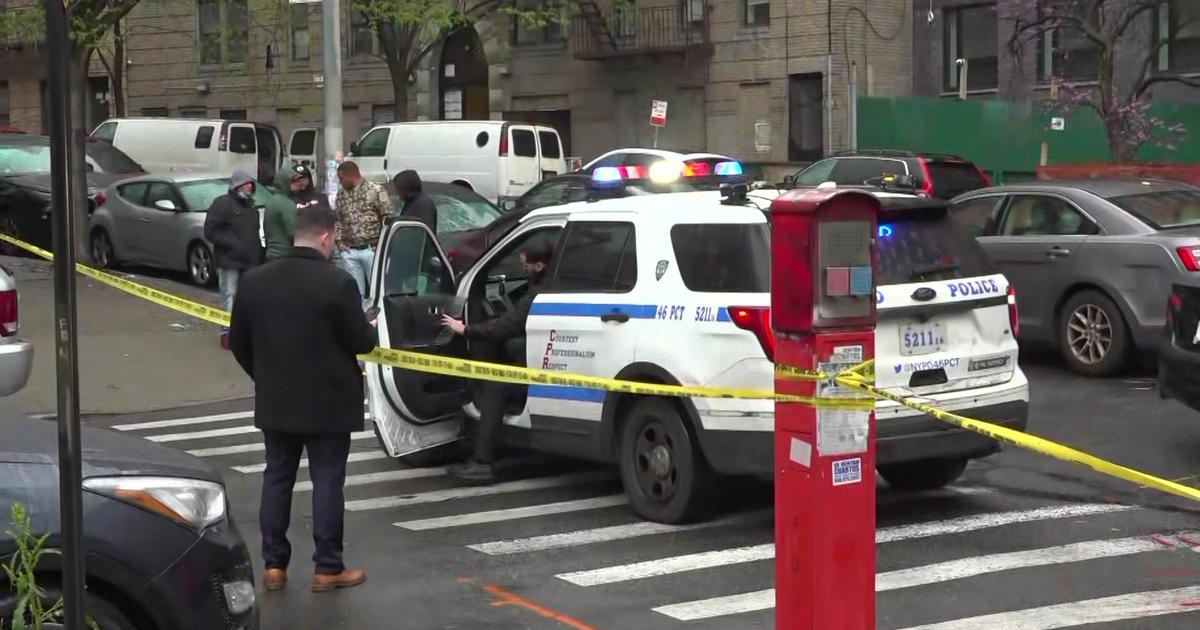US Stocks Slip After Greek 'No' Vote; European Markets Sink
NEW YORK (CBSNewYork/AP) -- U.S. stocks are edging lower after Greeks rejected the terms of the country's latest bailout.
The Dow Jones industrial average fell 45 points, or 0.3 percent, to 17,685 as of 11:45 a.m. Eastern time. It had slipped more than 150 points just after the markets opened.
The Standard & Poor's 500 index gave up five points, or 0.2 percent, to 2,071. The Nasdaq composite fell 14 points, or 0.3 percent, to 4,994.
European markets had bigger losses Monday, but not as bad as many were expecting. Many credited the moderate declines to the resignation of Greece's finance minister, who had clashed with his European counterparts.
In Sunday's referendum on creditor proposals, 61 percent of Greeks voted "no'' -- a much higher proportion than anticipated. Citizens would have been hit with more austerity measures, such as tax hikes and pension cuts.
Many voters said a better deal needed to be worked out with foreign creditors.
"We need them to help us. We are in a dire situation," said Greek voter Giorgos Karagiannakis. "But they have to understand that right now, the poor people, they can't take it anymore."
The events have been painful to watch for many Greek nationals living in Astoria, Queens -- one of the largest Greek communities in the United States -- as they wait to see whether the country will be kicked out of the European Union.
"They're suffering," said Stella Sfiris, who visits Saint Demetrios Greek Orthodox Church every morning to pray for her beloved home country.
"I feel very bad -- very, very bad," Nick Paraskevopoulos told CBS2's Janelle Burrell.
Fear of banks running out of money has led to long lines at ATMs in Greece, with withdrawals restricted to $67 a day.
"They don't know where their next meal is going to come from," Sfiris said.
Sunday's vote comes about a week after Greece missed a debt payment to the International Monetary Fund.
As CBS2's Dick Brennan reported, the vote triggered dancing in the streets, but on Monday it was back to reality as residents lined up in the streets to get cash.
The country has been bailed out twice in the last five years, with loans topping more than $250 billion from foreign investors.
Banks could be out of cash in a few days, and economic Armageddon might not be far behind.
"My worst fears are that my daughter who is 2-and-a-half, she is going to have to grow up the way my parents, my father grew up," Maria Bridimir said.
Meanwhile, Christine Lagarde, director of the IMF, said the fund stands ready to assist Greece if requested to do so. The IMF estimates Greece will need debt relief as well as new financing worth more than 60 billion euros through 2018 to avoid financial collapse.
Many in the markets fear that Sunday's vote has pushed Greece one step closer to the euro exit door. So-called "Grexit'' is considered to be one of the biggest risks facing the global economy.
"The prospects of Greece remaining in the eurozone have suffered a setback,'' said Bill O'Neill, head of the U.K. Investment Office at UBS Wealth Management. "A deal to keep Greece in the eurozone remains possible, but the odds against a successful conclusion have now lengthened.''
There was little evidence Greece's troubles might affect other eurozone countries imminently, with government borrowing rates for Italy and Spain rising only marginally.
Oil markets, however, took a big hit. The benchmark U.S. contract tumbled $2.72 to $54.21 a barrel in electronic trading on the New York Mercantile Exchange.
With Greek banks still shuttered and the European Central Bank under pressure to stop its emergency liquidity measures, Greece may not have long to secure a deal with creditors. A meeting of the eurozone's 19 leaders has been called for Tuesday, and it seems the creditors are expecting Greece to offer new proposals to restart talks.
Some hopes for progress in the talks grew Monday after Greek Finance Minister Yanis Varoufakis quit. His replacement, Euclid Tsakalotos -- the lead bailout negotiator -- may help unblock discussions with peers in the eurozone. Finance ministers also meet on Tuesday.
Over months of negotiations, Varoufakis' relations with his peers in the 19-country eurozone had deteriorated significantly. Traders say his resignation may offer a glimmer of hope of easing negotiations between the Greek government and its creditors.
"The fact that Varoufakis has resigned hints that the Greek government may at least be offering an olive branch given his reputation for using aggressive terms such as `water-boarding' to describe the creditors' actions,'' said Jane Foley, a senior currency analyst at Rabobank International.
(TM and © Copyright 2015 CBS Radio Inc. and its relevant subsidiaries. CBS RADIO and EYE Logo TM and Copyright 2015 CBS Broadcasting Inc. Used under license. All Rights Reserved. This material may not be published, broadcast, rewritten, or redistributed. The Associated Press contributed to this report.)



